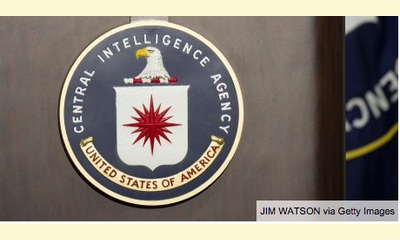|
|
The U.S. Senate Torture Report as a Truth Commission
an article by Roger Alford, The Huffington Post
It so happens that I have been researching the
South African Truth and Reconciliation
Commission at the same time that the Senate has
published an alarming report of abuse and torture
committed by Americans in the name of national
security. Without equating South African apartheid
with the Bush administration's policies and
practices, I thought that a few insights from the
South African TRC are worth highlighting. 
click on photo to enlarge
First, the Senate Report is a transition point for the
United States. Following early revelations of
torture, we have had a decade of obfuscation, but
now we are moving in the direction of truth-telling.
Whatever one thinks of it, the Senate's actions
represent a type of truth commission. Flawed and
partisan, but nonetheless a truth commission. Of
course, the South African TRC was not simply a
truth commission, but also a commission
committed to reconciliation and prosecution of
key perpetrators. The next step for the United
States will be to consider whether and how we
approach the next stage in this sad saga, which
will involve questions of reconciliation and
responsibility.
Second, while the Senate Report has focused on
the question of efficacy, we should first and
foremost recognize that information released
yesterday underscores the moral failure of those
who committed unspeakable acts of torture. It will
take some time, but we must come to accept that
the acts committed in the name of protecting our
nation have weakened it. Our standing in the
world has been irretrievably diminished. A poem
by Desmond Tutu, head of the South African TRC,
which he read during the opening session of the
TRC in 1996, bears repeating:
The world is wept.
Blood and pain seep into our listening; into
our wounded souls.
The sound of your sobbing is my own
weeping;
Your wet handkerchief my pillow for a past so
exhausted it cannot rest--not yet.
Speak, weep, look, listen, for us all.
Oh, people of the silent hidden past,
let your stories scatter seeds into our lonely
frightened winds.
Sow more, until the stillness of this land can
soften, can dare to hope and smile and sing;
Until the ghosts can dance unshackled, until
our lives can know your sorrows and be healed.
Third, regardless of whether there are
prosecutions, at some point those responsible for
the policies that led to torture will be invited to
apologize. If the South African TRC is any guide,
they will refuse. During the South African TRC, in
the kindest way possible Desmond Tutu invited
former Prime Minister P.W. Botha to apologize.
Tutu said to Botha:
"I speak on behalf of people who have suffered
grievously as a result of policies that we carried
out by governments, including the government
that he headed. I want to appeal to him. I want to
appeal to him to take a chance ... to say that he
may not himself even have intended the suffering.
. . .
(This article is continued in the discussionboard)
|








|
DISCUSSION
Question(s) related to this article:
Truth Commissions , Do they improve human rights?
* * * * *
LATEST READER COMMENT:
The following is excerpted from an article by Ernesto Semán, professor at the University of Richmond in the U.S. He looks at the recent torture report to the U.S. Senate in the light of the history of U.S. implication in the torture that took place in previous decades in Latin America. As he points out, the torture is only the most recent expression of American policies that amount to a form of state terrorism.
. . . instead of accepting the significance of the war on terror in undermining the rule of law, the report has served the Obama administration as another component of an ideological spinning wheel. . ...more.

|
|









